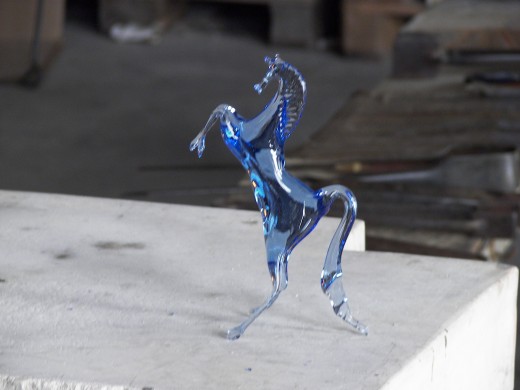The Glass Menagerie- by Tennessee Williams

Summary
The Glass Menagerie by Tennessee Williams is a sad play about a mother’s unwillingness to let go of the past and of her children and the struggle the mother and son go through trying to tread lightly on the sister, Laura’s condition. The scene starts off with Tom remembering his life before. The audience is then taking back to his previous home where he, his mother Amanda, and his sister are eating. The apartment becomes the main setting for the characters and we quickly realize their situation. Amanda likes to talk highly of her past and her gentlemen callers, the problem now is, Laura hasn’t gotten any gentlemen callers yet.
With the play starting off with Tom remembering his past life at home gives the audience some foreshadowing that things change in the Wingfield apartment. However, soon enough we find out why. Tom and his mother Amanda do not see eye to eye. We find out that Tom is stressed because he is head of the household. He goes to work at a warehouse job that he hates to pay the bills and put food on the table. His ambition, however, is to be a writer. There is a lot of tension between his mother and him because he is starting to go out drinking like his father did. We find out later that their father abandoned them a long time ago, leaving Amanda alone with two children.
Amanda is a humorous character. She loves her children dearly and expects great things from them, but she creates a high level of anxiety in the house. Constantly she pesters Tom about everything he does, for example, in a scene where he is drinking coffee “Amanda: -don’t gulp! Drinking too-hot liquids makes cancer of the stomach…put cream in. Tom: No, thank you. Amanda: To cool it. Tom: No! No, thank you, I want it black. Amanda: I know, but it’s not good for you. We have to do all that we can to build ourselves up.” She does this in an over motherly way. Amanda’s main concern, however, is finding something in her daughter’s life.
Laura is an overly shy girl with a condition where one leg is shorter than another. She is self-conscious and definitely a home-body. She doesn’t put herself out there to meet any gentlemen or anyone at all. I believe her low self-esteem comes from her mother’s overbearing sense of confidence. Constantly her mother is talking about her time of gentlemen callers. “One Sunday afternoon in Blue Mountain – your mother received— seventeen! –gentlemen callers! Why, sometimes there weren’t chairs enough to accommodate them all.” I think this made Laura feel like she couldn’t live up to that. We also learn that Laura really isn’t even like most shy girls. She lives in her own little world, probably because she shelter’s her own life, her own world of glass. She has a collection of little glass figures that she calls her glass menagerie.
Amanda pesters Tom enough for him to ask a coworker to dinner. This man, Jim, turns out to be a crush of Laura’s from school. She is shy at first but they really hit it off, he even kisses her, however, it’s not to last for he is engaged to another. Meanwhile, we find out that Tom sent in the money that was for the light bill to become a member of The Union of Merchant Seamen. Which, we know from his dress in the beginning, he does go off to join. When Jim’s life is exposed he quickly excuses himself from their company in embarrassment. Laura, who is shocked, but somewhat calm, hands him a piece of her glass menagerie collection on his way out. Tom and Amanda fight once again and Tom leaves, for good. The scene ends with him struggling with Laura’s memory and Laura blowing out the dinner candles.
Importance of Setting and Symbolism
Two important things in this play are scenery and symbolism. The fact that we are rarely taking away from the Wingfield apartment symbolizes Laura’s sheltered life and the Wingfields’ lonely and secluded life as a family as they struggle to hold together. The glass menagerie symbolizes the family’s fragility together and separately. They are breaking each other down by constantly being together, yet, without one another they would break down in some way. And Jim, as Tom points out in the beginning, symbolizes “the long delayed but always expected something that we live for.” I think if the scenery changed often the audience wouldn’t get that sense of how the family is secluded and dependent upon one another. If Laura had a pillow collection, for example, we would get that sense of insecurity feeling the family constantly has or the sense that fragile things will always break. These things are really key in this play and it wouldn’t be the same without them.
Conlusion
Overall I find this play very emotional. We follow each character through their own issues and then together as a family issue. Tom’s struggle with career’s and providing for his family, Amanda’s struggle with her past, her resentment towards her husband, and her undying love for her children, and Laura’s struggle with fitting in, anxiety, and reality. Then as a family they are trying to cope and stick together when they all have their own issues. You feel for each character as the story progresses and ultimately ends with every character’s heart broken.








